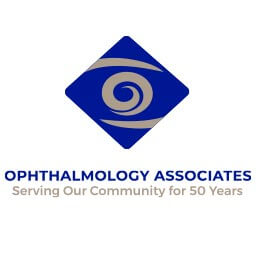A Comprehensive Guide to Selecting the Right LASIK Surgeon for Your Vision Correction
Posted by: Ophthalmology Associates of Fort Worth in Uncategorized

Refractive surgery, such as LASIK eye surgery, has revolutionized the field of ophthalmology, offering individuals a life free from the constraints of glasses or contact lenses.
This type of vision correction procedure has the potential to correct refractive errors, effectively improving visual acuity and quality of life. However, the success of these procedures significantly depends on the expertise of the LASIK surgeon performing them.
Therefore, understanding the process of choosing a LASIK surgeon is crucial to achieving optimal results from your LASIK eye surgery.
Understanding LASIK Surgery
LASIK, short for Laser-Assisted In Situ Keratomileusis, is an advanced surgical procedure for correcting vision problems caused by refractive errors such as nearsightedness, farsightedness, and astigmatism.
Good Candidates for LASIK
LASIK is suitable for individuals with refractive errors, including:
- Nearsightedness (Myopia): When distant objects appear blurry.
- Farsightedness (Hyperopia): When nearby objects are unclear.
- Astigmatism: Irregularly shaped corneas leading to distorted vision.
However, not everyone is an ideal candidate for this particular procedure of laser vision correction. A thorough evaluation by a board-certified ophthalmologist or an eye surgeon is necessary to determine eligibility. Factors like stable vision and general eye health are considered.
The Role of the Eye Doctor
The LASIK procedure is performed by an eye doctor known as an ophthalmologist. To ensure the best possible outcome, it is essential to select a skilled and board-certified ophthalmologist among all the best LASIK surgeons.
They will assess your eye health, discuss your expectations, and help you understand the risks and benefits of any surgery, including refractive surgery.
How LASIK Surgery Is Done
LASIK surgery involves reshaping the cornea, the clear front surface of the eye. This is achieved using advanced laser technology. Here is a step-by-step breakdown of this surgical process:
- Anesthetic Eye Drops: To numb the eye and ensure a painless experience.
- Flap Creation: The surgeon creates a thin, hinged flap on the cornea using a microkeratome or femtosecond laser.
- Laser Reshaping: An excimer laser is used to remove precise amounts of corneal tissue based on the individual’s prescription. This reshapes the cornea to correct the refractive error.
- Flap Repositioning: The flap is carefully repositioned, acting like a natural bandage. No sutures are needed.
The entire procedure usually takes only about 15 minutes for both eyes, on average. Most patients experience improved vision almost immediately.
Recovery Period
After LASIK eye surgeries, patients can typically expect a rapid recovery. Here’s a general timeline:
- Immediate Post-Op: You may experience mild discomfort, dryness, and blurred vision. It’s advisable to have someone drive you home.
- First 24-48 Hours: The eye starts to heal. Follow post-operative care instructions, including using prescribed eye drops.
- 1-2 Weeks: Most patients can resume normal activities. Vision stabilizes and improves during this period.
- Follow-Up Appointments: Regular check-ups with your ophthalmologist are crucial to monitor progress.
- Long-Term: LASIK provides lasting vision correction, but some patients may still require reading glasses as they age.
It’s worth noting that the recovery experience can vary from person to person. Some individuals may experience a quicker or slower recovery, depending on their unique circumstances.
Qualities to Look for in a Good LASIK Surgeon
When seeking a suitable LASIK surgeon for your vision correction needs, it’s vital to consider several key qualities to ensure a safe and successful outcome. Here is a comprehensive list of qualities to look for when choosing a LASIK surgeon:
- Surgeon’s Credentials: Check the surgeon’s educational background, medical degree, and training. Make sure they have the necessary qualifications to perform LASIK surgery.
- Qualified Surgeon: Seek a surgeon with a proven track record in performing LASIK procedures. Consider their experience and the number of successful surgeries they have completed.
- Board Certification: Look for a LASIK doctor who is board-certified. The American Board of Ophthalmology is a recognized authority in certifying ophthalmologists. Board certification signifies that the surgeon has met stringent standards and demonstrated their expertise in the field.
- Advanced Training: A well-qualified LASIK surgeon should have undergone advanced training in refractive surgeries, including LASIK. This training helps them stay up-to-date with the latest techniques and technology in the field.
- Up-to-date Technology: Ensure that the LASIK surgeon has access to and utilizes state-of-the-art equipment and technology. Advanced technology can enhance the precision and safety of the procedure.
- Customization: Look for a surgeon who tailors the LASIK procedure to your specific needs and refractive errors. Customized LASIK can yield better results and a higher level of patient satisfaction.
- Follow-Up Care: Inquire about the post-operative care and follow-up appointments. A suitable LASIK surgeon should provide thorough guidance for the recovery period and schedule regular check-ups to monitor your progress.
- Personal Comfort: Lastly, trust your instincts and choose a LASIK surgeon with whom you feel comfortable. A good rapport with your surgeon can help reduce anxiety and contribute to a successful LASIK experience.
Selecting the right LASIK surgeon is a crucial decision, as it can significantly impact the success of your vision correction procedure.
Take the time to thoroughly research and consider these qualities to make an informed choice and achieve the best possible outcome for your LASIK surgery.
Tips for Researching LASIK Surgeons
When researching and gathering information about potential LASIK surgeons, it’s crucial to be thorough and well-informed to ensure a successful outcome for your vision correction procedure. Here’s a list of tips to help you in your research:
- Seek Recommendations: Start by asking friends, family, and coworkers who have undergone LASIK surgery for recommendations. Personal referrals can provide valuable insights.
- Consult Your Optometrist: Your optometrist may have recommendations for a reputable LASIK surgeon. They can provide insights into your eye health and whether LASIK is suitable for you.
- Online Search: Use search engines or medical directories to find a list of LASIK surgeons in your area. Make sure to specify your location for localized results.
- Check Credentials: Verify the credentials of the LASIK surgeon. Look for their educational background, training, certifications, and professional affiliations.
- Board Certification: Ensure the LASIK surgeon is board-certified by the American Board of Ophthalmology. Board certification indicates a high level of expertise and competence.
- Find Reviews: Search for online reviews and testimonials from patients who have undergone LASIK with the surgeon you are considering.
- Satisfied Patients: Seek LASIK surgeons with a significant number of satisfied patients. A high patient satisfaction rate is a good indicator of the surgeon’s competence.
- Outcome Statistics: Inquire about the surgeon’s outcomes and success rates. They should be able to provide statistics regarding their procedures and patient outcomes.
- In-Person Consultations: Schedule consultations with multiple LASIK surgeons. This will allow you to meet them in person, discuss your specific needs, and gauge their professionalism and communication skills.
- Ask Questions: Prepare a list of questions to ask during consultations. Inquire about the surgeon’s experience, the specific LASIK technology they use, potential risks, and the expected recovery process.
- Compare Pricing: While cost should not be the sole factor in your decision, it’s essential to understand the pricing structure and what is included in the cost of the procedure.
- Surgical Facility: Investigate the surgical facility where the LASIK procedure will take place. Ensure it is accredited and equipped with modern technology.
- Understand the Process: Gain a thorough understanding of the LASIK procedure, the recovery period, and potential risks. An informed patient is better prepared for a successful outcome.
Tips for Researching LASIK Surgeons
When researching and gathering information about potential LASIK surgeons, it’s crucial to be thorough and well-informed to ensure a successful outcome for your vision correction procedure. Here’s a list of tips to help you in your research:
- Seek Recommendations: Start by asking friends, family, and coworkers who have undergone LASIK surgery for recommendations. Personal referrals can provide valuable insights.
- Consult Your Optometrist: Your optometrist may have recommendations for a reputable LASIK surgeon. They can provide insights into your eye health and whether LASIK is suitable for you.
- Online Search: Use search engines or medical directories to find a list of LASIK surgeons in your area. Make sure to specify your location for localized results.
- Check Credentials: Verify the credentials of the LASIK surgeon. Look for their educational background, training, certifications, and professional affiliations.
- Board Certification: Ensure the LASIK surgeon is board-certified by the American Board of Ophthalmology. Board certification indicates a high level of expertise and competence.
- Find Reviews: Search for online reviews and testimonials from patients who have undergone LASIK with the surgeon you are considering.
- Satisfied Patients: Seek LASIK surgeons with a significant number of satisfied patients. A high patient satisfaction rate is a good indicator of the surgeon’s competence.
- Outcome Statistics: Inquire about the surgeon’s outcomes and success rates. They should be able to provide statistics regarding their procedures and patient outcomes.
- In-Person Consultations: Schedule consultations with multiple LASIK surgeons. This will allow you to meet them in person, discuss your specific needs, and gauge their professionalism and communication skills.
- Ask Questions: Prepare a list of questions to ask during consultations. Inquire about the surgeon’s experience, the specific LASIK technology they use, potential risks, and the expected recovery process.
- Compare Pricing: While cost should not be the sole factor in your decision, it’s essential to understand the pricing structure and what is included in the cost of the procedure.
- Surgical Facility: Investigate the surgical facility where the LASIK procedure will take place. Ensure it is accredited and equipped with modern technology.
- Understand the Process: Gain a thorough understanding of the LASIK procedure, the recovery period, and potential risks. An informed patient is better prepared for a successful outcome.
LASIK Consultation and Evaluation Process
Before undergoing LASIK surgery, the consultation and evaluation process is a pivotal step in ensuring the best possible outcome for your vision correction.
- Assessment of Eye Health: A thorough evaluation by a qualified LASIK surgeon is essential to determine your eligibility for the procedure. They will assess your eye health and ensure there are no underlying conditions that might contraindicate LASIK.
- Customized Treatment: During the consultation, the surgeon will evaluate your specific refractive error and vision needs. This allows for a customized treatment plan tailored to your individual case.
- Clarifying Expectations: The consultation is the ideal time to discuss your expectations and concerns. A good LASIK surgeon should be able to address all your questions, ensuring that you have a clear understanding of the procedure.
- Informed Decision-Making: Through the consultation, you gain access to important information about the potential risks, complications, and success rates associated with LASIK. This empowers you to make an informed decision.
- Post-Operative Guidance: The consultation also covers post-operative care instructions and the follow-up schedule. This ensures that you are well-prepared for the recovery period and know what to expect.
- Risk Mitigation: The consultation process helps identify potential factors that might increase the risk of complications during LASIK. A good LASIK surgeon will use this information to minimize risks and maximize safety.

Questions to Ask During the Consultation
Here is a list of important questions to ask during your LASIK consultation to ensure you are making a well-informed decision:
- How many years in practice in ophthalmology have you had?
- How many LASIK surgeries and vision correction procedures have you performed?
- What are the possible complications and risks associated with LASIK surgery?
- What type of laser technology and equipment do you use?
- What is the success rate of your LASIK procedures?
- What are the post-operative care instructions and follow-up schedule?
- What are the potential outcomes for my specific case?
These questions will help you gauge the experience and expertise of your LASIK surgeon while also providing a clear understanding of the procedure, its potential outcomes, and the steps you need to take for a successful LASIK experience.
Cost and Financing Options for LASIK Surgery
The cost of LASIK can vary significantly from one patient to another and is influenced by various factors. It is essential to understand that the final cost depends on the following:
- Geographic Location: The cost of LASIK can differ based on where you are located. Larger metropolitan areas may have higher prices than rural regions.
- Surgeon’s Experience: A LASIK surgeon’s expertise and reputation may affect the cost. Highly experienced surgeons may charge more for their services.
- Type of LASIK Procedure: Various LASIK techniques and technologies are available. Customized LASIK and bladeless LASIK may be more expensive than traditional LASIK.
- Technology Used: The equipment and technology used during the procedure can influence the cost. State-of-the-art, advanced technology may come at a higher price.
- Surgical Facility: The location where the LASIK procedure is performed can affect the cost. Accredited surgical centers may have different pricing than private clinics.
It’s important to note that LASIK is typically considered an elective procedure, and as such, it may not be covered by most insurance plans.
However, Ophthalmology Associates understands that the cost of LASIK can be a concern for many patients. To make LASIK more accessible, we offer financing options through their partnership with CareCredit. This allows patients to spread the cost over manageable monthly payments.
In addition to financing options, Ophthalmology Associates also accepts payment via credit card and participates with most insurance plans in the United States. This provides patients with flexibility when it comes to covering the cost of their LASIK procedure.
For more information about financing options for LASIK at Ophthalmology Associates and to explore the available resources, you can visit Ophthalmology Associates Financing Options.
It’s always a good idea to contact the LASIK provider directly to discuss your specific situation and obtain a detailed breakdown of costs.
Making an Informed Decision on Selecting a LASIK Surgeon
When it comes to selecting a LASIK surgeon, there are several essential factors to consider. From researching the surgeon’s experience and technology used to inquiring about pricing and understanding the process, these steps can help you make an informed decision.
It’s worth noting that the consultation and evaluation process plays a pivotal role in determining your suitability for LASIK and identifying a skilled LASIK surgeon. Do not hesitate to ask questions and, if necessary, seek a second opinion to make an educated decision.
At Ophthalmology Associates, the well-being and satisfaction of our patients are our foremost priorities. Our team comprises highly experienced and qualified LASIK surgeons who leverage cutting-edge technology to deliver optimal results for our patients.
Furthermore, we understand the financial aspects of LASIK can be a concern for many, which is why we offer accessible financing options to alleviate cost-related worries.
Choose a LASIK Surgeon at Ophthalmology Associates
If you’re considering LASIK surgery, trust the experienced team at Ophthalmology Associates. For over 50 years, we have been providing top-quality eye care services in the Fort Worth area.
Our team of highly skilled and board-certified ophthalmologists utilizes state-of-the-art technology to deliver safe and effective outcomes for our patients.
When selecting a LASIK surgeon, remember to prioritize qualifications and experience above all else. We encourage you to schedule a consultation with our team to discuss your vision correction options in detail.
Call us at (817) 332-2020 or visit our page to book an appointment today!
Take the first step towards visual freedom with Ophthalmology Associates. Remember — your vision is worth investing in!


